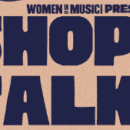IN THE STUDIO
If you are in a studio setting, you should try anything and everything that your creativity is intrigued by. I just follow the muse. It’s okay if the muse wanders off of a cliff and disintegrates into oblivion. – Keith Urban, Oct.

Keith Urban
Pre-production is huge. Getting to the artist’s core and starting with knowing what that is, that’s why we’re creating music. – Eric Lilavois, producer, engineer, mixer, Nov.
Listen to each other; respect each other. When you trust the person, they take you to a place you’ve never been before. – Stephan Moccio, producer, Jan.
“Showing up” is the rule I have: As long as I show up in the studio, usually something happens, and I’ll find myself in a place where I’m excited, creatively. – Brendon Urie, Panic! at the Disco, Jan.
If you record a guitar in your bedroom and it sounds amazing, it can go on a record! It doesn’t have to be recorded in a crazy expensive studio. – Vic Fuentes, Pierce The Veil, July
The most important songs are the ones that you leave off. You make a better record by editing. – Cheryl Pawelski, producer, label founder (Omnivore Recordings), Feb
MASTERING – THE FINAL POLISH
Gain is best applied in stages, much the way paint is best applied in coats. If you apply a light coat of paint, let it dry and repeat three times; you will achieve a smoother and more even finish than if you apply one very heavy coat. – Eric Corne, producer, engineer, author, Sept.
Be organized, have your mixes properly labeled and listen to them on several systems. Know which mix is best. It’s always expensive to master a record and then [go back and] have half of it remixed. Hiring an experienced mix engineer can save you money by having it done right the first time. – Bob Ludwig, mastering engineer, Gateway Mastering Studios, Oct.
Before you submit audio you should listen to it with headphones. Listen for pops and ticks from edits. Ensure that vocals aren’t too sibilant or over de-essed. – Kevin Bartley, Capitol Mastering, Oct.
Treat each song individually. Don’t try to match something another song has done. You lose the unique qualities when you do. – Kevin Bartley, Capitol Mastering, Oct.
With the monitor volume up, be sure that you love what you’re sending without fearing the level issue. Listen to it in the car, listen to it in the studio. Everyone involved should hear it. If you feel good about it, that’s the one to send. –Gavin Lurssen, engineer, Oct.
CREATE A BUZZZZZZZZZZ……
Word-of-mouth is a huge deal, especially if you’re just starting out. It’s important to put your best work out there, because that one kid who showed up to a show might be your biggest fan. – Caroline Moore, artist/author, Oct.
Put out content regularly, but not too regularly. Don’t flood the market, but don’t wait a year to put something out. Every three months or a couple times a year to make sure you have fresh content. – Emmanuel Zunz, founder, CEO, ONErpm, Oct.
Music should be sent as links to your SoundCloud, YouTube or your website that has your music embedded on it. Many music industry professionals don’t even own a CD player anymore. – Andy Reynolds, concert tour manager, March
Do not include links to any more than three tracks. Your listener will be hooked after listening to three tracks, or they are going to pass on your material. Organize your links or SoundCloud page to feature your best song first. Do not save the best until last. – Andy Reynolds, concert tour manager, March
Instead of assuming fans will come back on their own, commit to sending out eye-catching, engaging email updates regularly. This approach will make them feel like part of an insider community and provide a teaser to click through and learn more. – Chuck Fishman, media, entertainment and publishing director, Acquia, May
Make sure your imaging is on point, because that’s the first place any manager is going to look. Clean up your social and digital footprint before soliciting manager meetings. – Lawrence Vavra, co-founder,
Deckstar Management, June
When artists don’t understand how the business works, they can get frustrated and dismissive. That kind of pushback can hurt a campaign and make [publicists’] job harder. – Mitch Schneider, publicist, MSO, June

Pierce The Veil (l-r): Mike Fuentes, Vic Fuentes, Tony Perry, Jaime Preciado
Reach out to any company that you endorse or would like to endorse—email them, tag them in social media posts along with pics of your gear. Making introductions that lead to bigger opportunities is a good thing for all. – Matt Starr, touring/recording drummer, June
If you get booked at a college, ask the student music chair if they are connected with someone on their student newspaper or the radio station. Don’t forget to ask if there is an active on-campus TV station doing interviews and band performances. – Chris Fletcher, Coast to Coast Music, Oct.
GET DOWN TO BUSINESS
It’s important to have some sort of business sensibility, even as an artist. Know what you’re getting involved in. If you’re signing a contract that lasts [however many] years, you should understand what the consequences are of doing that. – Jimmy Brown, Bassh, July
If I were an artist, I wouldn’t go after the major executives; I’d want them to come to me. Use all your resources, let your music touch people and get a response out of them. Then build on that. – Eesean Bolden, VP of A&R, Epic Records, Jan.
Call before emailing to make sure [a production house] is accepting new material, and ask what format of music they prefer. And, whoever answers the phone, get their name, establish a connection. – Anika Paris, songwriter, author, Sept.
Don’t half-ass it. Don’t ever. Not even if you’re on a deadline to get something out, or you’re working with a difficult client and it is easier to just do whatever is asked of you, even if you know it’s a bad idea. – Caroline Moore, artist, author, Oct.
Understand that some decisions are made—or not made—due to timing. If [artists] get passed on, they need to know that it’s not always about them or their music. – Eesean Bolden, VP of A&R, Epic Records, Jan.













